
|
Jonathan ColeJohn Mitchell Mason Professor of the University Provost and Dean of the Faculties, EmeritusJonathan R. Cole is the John Mitchell Mason Professor of Columbia University where he has spent his academic career. From 1987 to 1989 he was Vice President of Arts and Sciences, and from 1989 to 2003, he was Provost and Dean of Faculties of Columbia University—the second longest tenure as Provost in the University’s 258-year history. His scholarly work focused principally on the development of the sociology of science as a research specialty. This is seen in early published papers and in his 1973 book with Stephen Cole, Social Stratification in Science (University of Chicago Press). Among his other published works on science are: Fair Science: Women in the Scientific Community (1987); The Outer Circle: Women in the Scientific Community (1991). In recent years, his scholarly attention has focused on issues in higher education, particularly problems facing the great American research universities. His edited book The Research University in a Time of Discontent (Johns Hopkins University Press 1994), contains essays by prominent educators, including his own opening chapter. |
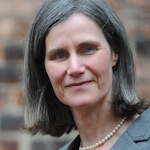 |
Patricia CulliganProfessor of Civil Engineering and Vice Dean of Academic Affairs, School of Engineering and Applied SciencePatricia Culligan’s principal fields of interest include geo-environmental engineering, porous media flow and transport, urban sustainability and geotechnical centrifuge modelling. Her current research focuses on experimental and theoretical modelling of problems involving subsurface non-aqueous phase liquid (NAPL) transport and remediation, colloid transport in porous media, unsaturated flows and alternative strategies for urban water and wastewater management. Dr. Culligan is the author or co-author of over 100 technical articles, including two books, three book chapters, and over 60 refereed journal and conference proceedings. |
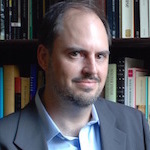 |
Nick DamesTheodore Kahan Professor of Humanities, Department of English and Comparative LiteratureNicholas Dames is a specialist in the novel, with particular attention to the novel of the nineteenth century in Britain and on the European continent. His interests include novel theory, the history of reading, and the aesthetics of prose fiction from the seventeenth century to the present. He is the author of Amnesiac Selves: Nostalgia, Forgetting, and British Fiction, 1810-1870 (Oxford, 2001), which was awarded the Sonya Rudikoff Prize by the Northeast Victorian Studies Association; and The Physiology of the Novel: Reading, Neural Science, and the Form of Victorian Fiction (Oxford, 2007). His scholarly articles have appeared in The Henry James Review, Representations, Nineteenth-Century Literature, and Victorian Studies, as well as edited volumes such as Oxford’s Encyclopedia of British Literature, and Cambridge’s History of Literary Criticism. He has been a recipient of numerous awards including the Mark Van Doren Award for Teaching (2013). From 2011-2014 he was Chair of the Department of English and Comparative Literature. His current project is a history of the chapter, from the textual cultures of late antiquity, particularly the editorial and scribal practices of early Christianity, to the modern novel. |
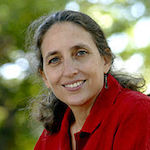 |
Ruth DeFriesDenning Family Professor of Sustainable Development, Department of Ecology, Evolution, and Environmental BiologyRuth DeFries is a professor of ecology and sustainable development at Columbia University in New York. She uses images from satellites and field surveys to examine how the world’s demands for food and other resources are changing land use throughout the tropics. Her research quantifies how these land use changes affect climate, biodiversity and other ecosystem services, as well as human development. She has also developed innovate education programs in sustainable development. DeFries was elected as a member of the U.S. National Academy of Sciences, one of the country’s highest scientific honors, received a MacArthur “genius” award, and is the recipient of many other honors for her scientific research. In addition to over 100 scientific papers, she is committed to communicating the nuances and complexities of sustainable development to popular audiences, most recently through her book The Big Ratchet: How Humanity Thrives in the Face of Natural Crisis. |
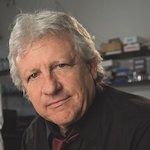 |
Stuart FiresteinProfessor of Biological Sciences and Chair, Department of Biological SciencesStuart Firestein and his colleagues at the Department of Biological Sciences study the vertebrate olfactory system, possibly the best chemical detector on the face of the planet. His laboratory seeks to answer the fundamental human question: How do I smell? Dedicated to promoting the accessibility of science to a public audience, Dr. Firestein seeks to reach broader audiences through nonscientific writing, public appearances, and his support of science in the arts. He also serves as an advisor for the Alfred P. Sloan Foundation’s program for the Public Understanding of Science. Recently he was awarded the 2011 Lenfest Distinguished Columbia Faculty Award for excellence in scholarship and teaching. His book on the workings of science for a general audience, Ignorance: How it Drives Science (Oxford, 2012) has received esteemed praise from the public and critics and has even become integrated into the curricula as required readings among several high schools and colleges. |
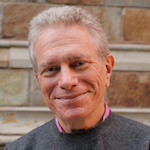
|
David FreedbergPierre Matisse Professor of Art History, Director, Italian Academy, Department of Art HistoryDavid Freedberg is best known for his work on psychological responses to art, and particularly for his studies on iconoclasm and censorship (Iconoclasts and their Motives (1984), The Power of Images: Studies in the History and Theory of Response (1989) ). His more traditional art historical writing originally centered on Dutch and Flemish art, specializing in the history of Dutch printmaking. His recent work focusses on the history of science and on the importance of the new cognitive neurosciences for the study of art and its history. Following a series of important discoveries in Windsor Castle, the Institut de France and the archives of the Accademia dei Lincei in Rome, he has for long been concerned with the intersection of art and science in the age of Galileo. While much of his work in this area has been published in articles and catalogues, his chief publication in this area is The Eye of the Lynx: Galileo, his Friends, and the Beginnings of Modern Natural History (2002). Although Freedberg continues to teach in the fields of Dutch, Flemish, French, and Italian seventeenth century art, as well as in historiographical and theoretical areas, his primary research now concentrates on the relations between art, history, and cognitive neuroscience. Taking up the psychological dimensions of the work outlined in The Power of Images (1989), he has been engaged in research and experiments on the relations between vision, embodiment, movement and emotion. |
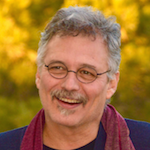 |
Stathis GourgourisDirector, Institute of Comparative Literature & SocietyProfessor Gourgouris writes and teaches on a variety of subjects that ultimately come together around questions of the poetics and politics of modernity and democracy. He is the author of Dream Nation: Enlightenment, Colonization, and the Institution of Modern Greece (Stanford, 1996); Does Literature Think? Literature as Theory for an Antimythical Era (Stanford, 2003); Lessons in Secular Criticism (Fordham 2013); and editor of Freud and Fundamentalism (Fordham, 2010). Outside these projects he has also published numerous articles on Ancient Greek philosophy, political theory, modern poetics, film, contemporary music, and psychoanalysis. He is currently completing work on two other book projects of secular criticism: The Perils of the One and Nothing Sacred. A collection of such essays on poetics and politics, written in Greek over a period of 25 years, is forthcoming in 2016 with the title Contingent Disorders. He is also an internationally awarded poet, with four volumes of poetry published in Greek, most recent being Introduction to Physics (Athens, 2005). |
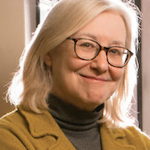 |
Julia HirschbergPercy K. and Vida L. W. Hudson Professor of Computer Science and Chair, Department of Computer ScienceJulia Hirschberg was among the first to combine Natural Language Processing approaches to discourse and dialogue with speech research. She pioneered techniques in text analysis for prosody assignment in Text-to-Speech synthesis at Bell laboratories in the 1980s and 1990s, developing corpus-based statistical models based upon syntactic and discourse information which are in general use today in text-to-speech (TTS) systems. She joined the Columbia faculty as a Professor in the Department of Computer Science in 2002. She and her students have continued and extended research on spoken dialogue systems; on the automatic classification of trust, charisma, deception and emotion from speech; on speech summarization; prosody translation, hedging behavior in text and speech, text-to-speech synthesis, and speech search in low resource languages. She also holds several patents in TTS and in speech search. She now serves on the IEEE Speech and Language Processing Technical Committee, the Executive Board of the CRA, the AAAI Council, the Executive Board of the NAACL, and the board of the CRA-W. She was elected to the American Philosophical Society in 2014 and as an Honorary Member of the Association for Laboratory Phonology in the same year. |
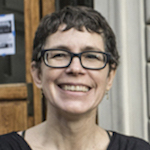 |
Marguerite HollowayAssociate Professor of Professional Practice and Director, Science & Environmental JournalismMarguerite Holloway has written about science—including natural history, environmental issues, public health, physics, neuroscience and women in science—for publications including the New York Times, Discover, Natural History, Wired and Scientific American, where she was a long-time writer and editor. She is the author of The Measure of Manhattan, the story of John Randel Jr., the surveyor and inventor who laid the grid plan on New York City, and of the researchers who use his data today (W.W. Norton, 2013); she recently wrote the new introduction to Manhattan in Maps (Dover, 2014). Holloway is currently working on several innovative digital projects, including the Metropolis of Science project, website and smartphone app. |
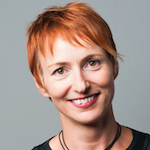 |
Rebecca Jordan-YoungTow Associate Professor for Distinguished Scholars and Chair, Women’s, Gender, and Sexuality Studies, Barnard CollegeRebecca Jordan-Young is the author of Brain Storm: The flaws in the science of sex differences (Harvard University Press, 2010), and more than three dozen articles and book chapters at the intersection of science and social differences, especially gender, sexuality, and race. Jordan-Young holds a Ph.D. in Sociomedical Sciences from Columbia University. She teaches such courses as Science and Sexualities; Introduction to Women and Health; Pleasures and Power (an Introduction to Sexuality Studies); and the Senior Seminar in Women’s, Gender, and Sexuality Studies. Professor Jordan-Young directs the Science and Social Difference Working Group in the Center for Study of Social Differences at Columbia University, and co-directs the Columbia University Seminar on Sexuality, Gender, Health, and Human Rights. Before coming to Barnard College, Jordan-Young spent more than ten years conducting research on HIV/AIDS and urban health, and ran street outreach programs to prevent HIV among drug users and street-based sex workers. Her research has been supported by the National Science Foundation; the Tow Family Foundation; the Brocher Foundation; the Royal Dutch Academy of Arts and Sciences; and a Presidential Research Award from Barnard College, among others. |
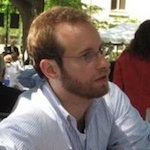
|
Jeremy KesslerAssociate Professor of Law, Columbia Law SchoolJeremy K. Kessler is a legal historian whose scholarship focuses on First Amendment law, administrative law, and constitutional law generally. He joined the Columbia Law School faculty in 2015. His forthcoming book, Fortress of Liberty: The Rise and Fall of the Draft and the Remaking of American Law (Harvard) explores how legal and political contests over the military draft transformed the relationship between civil liberties law and the American administrative state. Kessler also writes about law and history for non-academic publications including The New Republic, n+1, The Boston Review, and Jacobin. Prior to joining Columbia Law School, Kessler clerked for Judge Pierre N. Leval of the U.S. Court of Appeals for the 2nd Circuit. He previously served as the David Berg Foundation Fellow at the Tikvah Center for Law & Jewish Civilization at New York University, as a graduate fellow at Cardozo School of Law, and as the Harry Middleton Fellow in Presidential Studies at the Lyndon B. Johnson Presidential Library in Austin, Texas. He currently sits on the board of the American Society for Legal History. |

|
Upmanu LallProfessor of Engineering, The Earth Institute, Columbia UniversityDr. Upmanu Lall is the Director of the Columbia Water Center and the Alan and Carol Silberstein Professor of Engineering at Columbia University. He has broad interests in hydrology, climate dynamics, water resource systems analysis, risk management and sustainability. Dr. Lall has pioneered the application of techniques from nonlinear dynamical systems, nonparametric methods of function estimation and their application to spatio-temporal dynamical systems, Hierarchical Bayesian models, systems optimization and simulation and the study of multi-scale climate variability and change as an integral component of hydrologic systems. He has published in journals that focus on hydrology, water resources, climate, physics, applied mathematics and statistics, development, policy and management science. He has been engaged in high level public and scientific discussion through the media, the World Economic Forum, and with governments, foundations, development banks, and corporations interested in sustainability. He has served on several national and international panels. He was one of the originators of the Consortium of Universities for the Advancement of Hydrologic Science, and is currently the President of the Natural Hazards Focus Group of the American Geophysical Union. |
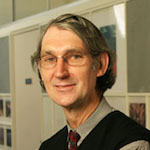 |
John MutterProfessor, Department of Earth and Environmental Sciences and Department of International and Public AffairsJohn Mutter is a Professor in the Department of Earth and Environmental Sciences and the Department of International and Public Affairs at Columbia University. His research focuses on the role of natural disasters in constraining development opportunities for poor and emerging societies. Meteorological extremes are expected to increase as a result of human-induced climate change, and his work attempts to assess who are most vulnerable to disasters such as the 2010 Haiti earthquake and Hurricane Katrina. John Mutter directs the Earth Institute’s postdoctoral Fellows Program and is director of graduate studies for the Ph.D. in Sustainable development. Mutter is also one of the principal investigators on the Earth Institute’s National Science Foundation-funded ADVANCE program, which is designed to create institutional change that will improve the opportunities for women in earth science and engineering at Columbia. Mutter has authored or co-authored more than 80 articles in scientific journals in the natural and social sciences and many popular publications. His fieldwork included over three years at sea in all parts of the world’s oceans. |
 |
James G. NealVice President for Information Services and University Librarian, EmeritusJim Neal served as the Vice President for Information Services and University Librarian at Columbia University during 2001-2014, providing leadership for university academic computing and a system of twenty-two libraries. Previously, he served as the Dean of University Libraries at Indiana University and Johns Hopkins University, and held administrative positions in the libraries at Penn State, Notre Dame, and the City University of New York, and recently completed a three-year term as ALA Treasurer. He has served on the Board and as President of the Association of Research Libraries, on the Board and as Chair of the Research Libraries Group (RLG), on the Board and as Chair of the National Information Standards Organization (NISO), and on the Board of the Digital Preservation Network. He has represented the American library community in testimony on copyright matters before Congressional committees, was an advisor to the U.S. delegation at the World Intellectual Property Organization (WIPO) diplomatic conference on copyright, has worked on copyright policy and advisory groups for universities and for professional and higher education associations, and during 2005-08 was a member of the U.S. Copyright Office Section 108 Study Group. He is chair of the Association of College and Research Libraries (ACRL) 2017 National Conference, and is coordinating the fundraising for the IFLA 2016 scholarship program. In 2010, he received the honorary Doctor of Laws degree from the University of Alberta. And in 2015, he received the ALA Joseph W. Lippincott Award for “distinguished service to the profession of librarianship”, and the Freedom to Read Foundation Roll of Honor Award. |
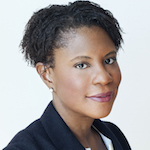 |
Alondra NelsonProfessor of Sociology and Gender Studies, Dean of Social Science, Faculty of Arts and SciencesAlondra Nelson is professor of sociology and gender studies and Dean of Social Science at Columbia University, where she has served as director of the Institute for Research on Women, Gender, and Sexuality. She is Chair-elect of the American Sociological Association Section on Science, Knowledge and Technology. Her most recent book, The Social Life of DNA: Race, Reparations, and Reconciliation after the Genome (Beacon Press, 2016), traces how claims about ancestry are marshaled together with genetic analysis in a range of social ventures. She also takes up these themes in several publications that are among the earliest empirical scholarly investigations of direct-to-consumer genetic testing. Nelson is also the author of Body and Soul: The Black Panther Party and the Fight Against Medical Discrimination (University of Minnesota Press, 2011), which was recognized with four scholarly awards, including the Mirra Komarovsky Book Award from the Eastern Sociological Society and the Distinguished Contribution to Scholarship Book Award from the American Sociological Association (Section on Race, Gender and Class). Nelson’s research focuses on how science and its applications may shape the social world, including aspects of personal identification, racial formation, and collective action. In turn, she also explores the ways in which social groups reject, challenge, engage and, in some instances, adopt and mobilize conceptualizations of race, ethnicity, and gender derived from scientific and technical domains. In 2014, she began new ethnographic research that examines grassroots responses to the STEM-field crisis. |
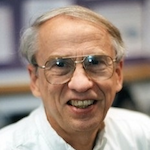
|
James YardleyExecutive Director, Columbia Nanotechnology Initiative (CNI); Managing Director, Energy Frontier Research Center; and Senior Research Scientist, Department of Electrical EngineeringJames Yardley served as Assistant Professor of Chemistry and Associate Professor of Chemistry at the University of Illinois in Champaign Urbana from 1967 until 1977 where he received the Alfred P. Sloan Fellowship and the Dreyfus Teacher-Scholar Award. He directed research at Honeywell International from 1977 until 1991, where he served in a number of research and management positions before becoming Vice President of Technology for the Electronic Materials Business. At Columbia, he has served as director of the Center for Integrated Science and Engineering, and has been Managing Director of the Columbia Nanoscale Science and Engineering Center, a National Science Foundation program to understand fundamentals for Nanotechnology. This program has opened new vistas in understanding charge transport in molecular systems and has pioneered explorations of the unique properties of graphene. He also is Managing Director for the Columbia Energy Frontier Research Center sponsored by the Department of Energy to develop fundamental understanding of solar cell technology. In his scientific career spanning academia and industrial research, Prof. Yardley has been involved in a wide range of activities including scientific research, technical development, and new business development. In 2014 he was appointed as Acting Executive Director of the Columbia Nano Initiative, a new initiative at Columbia University to develop, support, and foster new research at Columbia in Nanoscale Science and Engineering. |
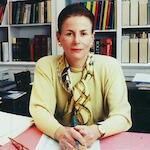 |
Harriet ZuckermanProfessor of Sociology, EmeritaHarriet Zuckerman’s research has focused on the social organization of science and scholarship. She is the author of Scientific Elite: Nobel Laureates in the United States (1979). This book, in addition to being a study of the scientific elite, constitutes a fascinating introduction to the phenomenon of multiple discovery, particularly in science and technology. Its findings, particularly in relation to “accumulation of advantage”, are relevant to the question of eminence, exceptional achievement, and greatness. |
